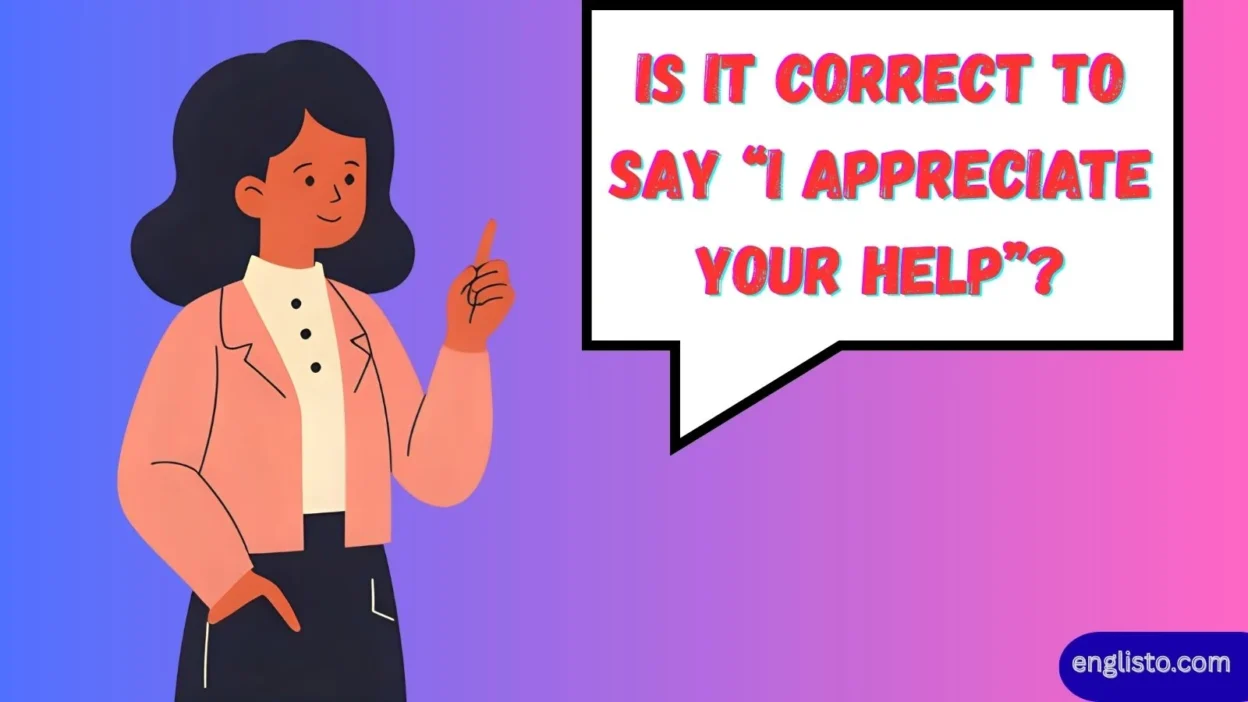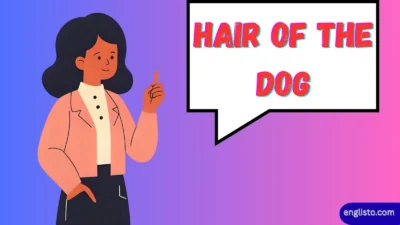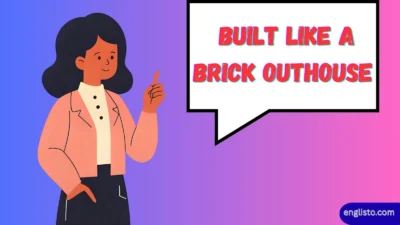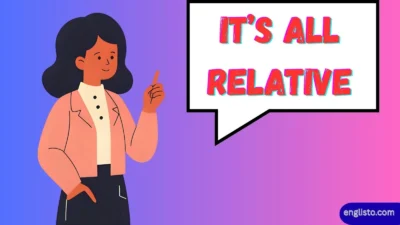When you want to express gratitude, the phrase “I appreciate your help” often comes to mind. It’s short, polite, and respectful—but is it always the right choice? The beauty of English is that one phrase can carry different nuances depending on tone, setting, and context. Saying “I appreciate your help” isn’t just grammatically correct—it’s also a versatile way to acknowledge someone’s support, time, or effort. Still, there are subtleties in how it’s received, alternatives worth exploring, and practical tips on when to use it effectively. Is It Correct to Say “I Appreciate Your Help”?.
This article dives deep into the meaning, grammar, variations, pros and cons, and the impact of using this phrase in both formal and informal contexts. By the end, you’ll have a comprehensive understanding of how to use it—and when another expression might serve you better.
What Does “I Appreciate Your Help” Really Mean?
At its core, the phrase communicates gratitude and recognition. You’re acknowledging that someone has taken time, effort, or emotional energy to assist you. It can apply to:
- Practical support: helping with a project, carrying groceries, or completing a task.
- Emotional support: being a good listener, offering encouragement, or showing kindness.
- Professional support: colleagues guiding you through a work challenge, managers providing advice, or teammates lending a hand.
Think of it as a middle ground between a casual “thanks” and a heartfelt “I’m truly grateful for everything you’ve done.”
Here’s a breakdown of the phrase:
| Element | Role in the Sentence | Example Usage |
| I | Subject (nominative pronoun) | Refers to the speaker |
| Appreciate | Verb (predicate) | Expresses gratitude/recognition |
| Your | Possessive pronoun | Indicates that the help belongs to the person addressed |
| Help | Noun (object) | The action or support being acknowledged |
So grammatically, it’s a complete and correct sentence.
Read More: Should Have Not or Should Not Have: The Correct Usage Explained
Why This Phrase Works in Everyday English
One reason “I appreciate your help” remains a popular choice is because it balances politeness with simplicity. It’s warm without being overly emotional, professional without being stiff, and universally understood.
Key Strengths:
- Versatility – Suitable for casual, professional, or formal settings.
- Respectful tone – It communicates acknowledgment of effort without sounding entitled.
- Polished simplicity – Easy to say, easy to write, yet impactful.
Example Scenarios:
- Workplace: “I appreciate your help with the presentation. Your insights really polished it.”
- Everyday life: “I appreciate your help moving the furniture yesterday—it made the process so much easier.”
- Academic setting: “I appreciate your help with my math homework. Your patience made a huge difference.”
Variations and Synonyms of “I Appreciate Your Help”
Sometimes, repetition makes a phrase feel generic or overused. Having alternatives ready helps you match the tone to the situation.
| Alternative Phrase | Tone/Context | Example |
| Thank you so much for your help | Warm, heartfelt | “Thank you so much for your help with the event planning—it turned out beautifully.” |
| I truly value your support | Formal, professional | “I truly value your support during this project.” |
| Your assistance means a lot | Friendly, casual | “Your assistance means a lot—I couldn’t have done it without you.” |
| I can’t thank you enough | Emotional, strong gratitude | “I can’t thank you enough for being by my side.” |
| You’ve been a lifesaver | Informal, lighthearted | “You’ve been a lifesaver helping me with that complicated form.” |
These alternatives add variety while keeping the core sentiment of gratitude intact.
When to Use It in Formal and Informal Settings
In Professional Environments
Saying “I appreciate your help” fits perfectly in emails, meetings, and corporate interactions. It’s respectful yet not too personal—ideal when addressing colleagues, managers, or clients.
Examples:
- Email to a manager: “I appreciate your help reviewing my report. Your feedback was invaluable.”
- Business context: “I appreciate your help navigating the contract details. It saved us significant time.”
In Informal Situations
Among friends or family, the phrase still works, though sometimes people prefer warmer or more playful alternatives.
Examples:
- To a friend: “I appreciate your help carrying those boxes. You’re always there when I need you.”
- To a loved one: “I appreciate your help cooking dinner tonight—it really lifted my mood.”
Pros and Cons of Saying “I Appreciate Your Help”
Like any expression, this phrase has its strengths and drawbacks.
| Pros | Cons |
| Polite and respectful | Can sound generic if overused |
| Professional and adaptable | Lacks emotional depth in certain situations |
| Recognizes effort clearly | Sometimes feels too formal in casual exchanges |
| Works in both spoken and written communication | Doesn’t always capture specifics of someone’s contribution |
The takeaway: use it thoughtfully and, when possible, add detail to personalize your message.
Adding Depth: How to Make It More Meaningful
Instead of stopping at “I appreciate your help,” add specifics to show sincerity. This boosts emotional impact and makes your gratitude more memorable.
Before: “I appreciate your help.”
After: “I appreciate your help organizing the event. Your attention to detail ensured everything ran smoothly.”
Tips to Enrich Your Expression:
- Mention the specific action the person took.
- Highlight the impact their help had.
- Use words that convey emotion (e.g., deeply, truly, sincerely).
Grammatical Breakdown and Nuances
From a grammar perspective, the phrase is structurally sound. Let’s break it down further:
- Subject (I) → the speaker.
- Verb (appreciate) → expresses the act of valuing or recognizing.
- Object (your help) → what is being appreciated.
It’s worth noting:
- The verb “appreciate” is transitive, meaning it requires an object (you can’t just say “I appreciate”).
- “Your” is a possessive pronoun modifying “help.”
- The sentence is direct, active voice—making it clear and confident.
Exploring Cultural and Contextual Nuances
Not every culture expresses gratitude in the same way. In some environments, being overly formal can feel distant, while in others, it’s seen as a sign of respect.
For example:
- In American English, “I appreciate your help” is common in workplaces where professionalism matters.
- In British English, alternatives like “Much appreciated” or “Cheers for your help” are more casual.
- In Asian professional settings, detailed appreciation that acknowledges collective effort may feel more natural.
Examples Across Different Scenarios
| Scenario | Example Expression | Tone |
| After an interview | “I appreciate your help preparing for the interview—it gave me confidence.” | Professional, respectful |
| During a group project | “I appreciate your help coordinating the research section.” | Collaborative |
| With a teacher/mentor | “I appreciate your help explaining the math problem. Your patience means the world.” | Respectful, warm |
| Family context | “I appreciate your help with dinner—it made the evening special.” | Affectionate |
| Community setting | “I appreciate your help volunteering last weekend. You made a real difference.” | Impactful |
FAQs About “I Appreciate Your Help”
Is it grammatically correct to say “I appreciate your help”?
Yes. It’s a complete sentence with a subject, verb, and object.
Is this phrase too formal for friends?
Not necessarily—it works fine, though casual alternatives like “Thanks a ton” may feel warmer.
What’s the difference between “I appreciate your help” and “Thank you for your help”?
They’re similar, but “I appreciate” often sounds slightly more formal and polished.
Can I use it in professional emails?
Absolutely. It’s a safe, polite, and professional choice.
How can I make it sound more heartfelt?
Add detail: “I appreciate your help editing the report—it really improved the final version.”
Conclusion
The phrase “I appreciate your help” is more than just correct English—it’s a respectful, adaptable, and professional way to show gratitude. Its strength lies in versatility, but its weakness comes from overuse or lack of detail. By personalizing the expression and tailoring it to the situation, you can transform it from a polite formality into a heartfelt acknowledgment that strengthens connections—whether in the office, classroom, home, or community.
Gratitude, after all, isn’t just about words—it’s about making others feel valued, respected, and remembered. And when used thoughtfully, “I appreciate your help” does exactly that.



